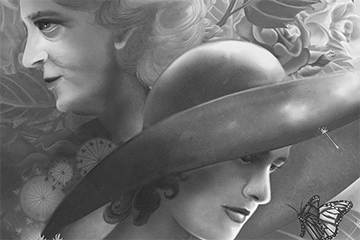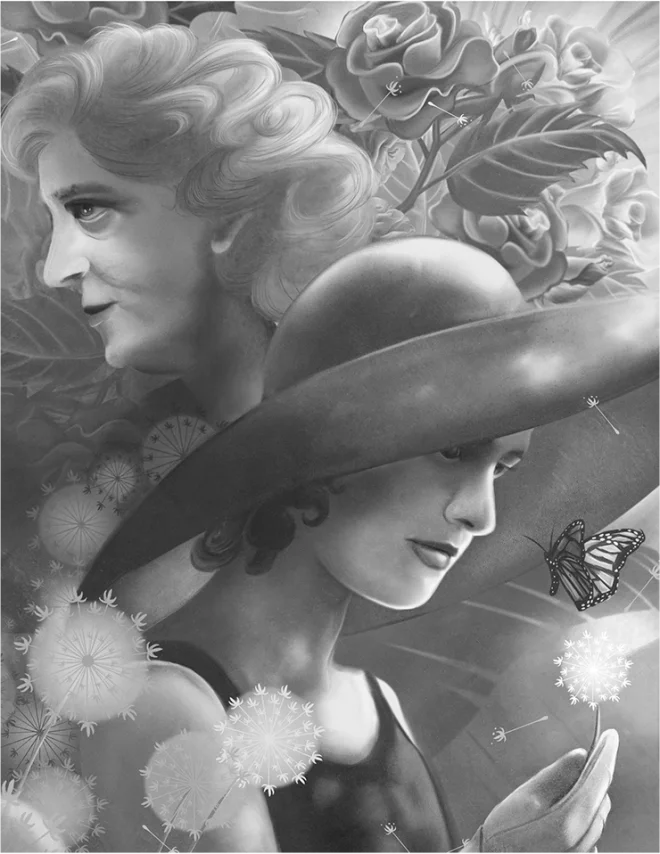
I love a funny story like everyone else, but so many of the stories submitted to us are about someone moving through trauma or grief with their garden by their side. And while I’ve never loved weeding the garden, I’m overwhelmed by the number of stories we read that say weeding saved someone’s mental health while they worked through something heavy.
Today’s story, “The Joy of a Weed,” follows a similar path. Weeds in the garden help a woman whose mother has a stroke. Beyond feeding her mother, making appointments, ordering medicine, and being her mother’s primary caretaker, she finds solace in pulling weeds from the earth.
She says she found mindfulness and meditation from weeding the garden. “From the joy of a weed that needs you to pull it. The weed that ultimately lets you focus completely on its color and texture and smell and then gives you a sense of control as you rip it away to make space for a beautiful flower.”
This is a beautiful story about weeding the garden that I wanted to share with you today, in case you are going through something heavy and need ideas for ways to keep your mind occupied on something else. I really hope you enjoy it.
For More Stories About Weeding the Garden
This story about weeding the garden comes from our archive that spans over 30 years and includes more than 130 magazine issues of GreenPrints. Pieces like these that inject the joy of gardening into everyday life lessons always brighten up my day, and I hope it does for you as well. Enjoy!

The Joy of a Weed
When you need a bit of help.
By Katherine Armbruster-Kittle
This is the first day of Autumn. Here in New York State, the gardening season is almost over. But I’m still weeding. I will milk it out to the last possible moment, using the last bits of warmth from the sun to trick my psyche into believing that the peace of the garden is not quite out of reach. Not yet.
My mom had a stroke five years ago. I don’t quite know how to describe that time in our lives except that there was the life be-fore the stroke and the life after. It changed for all of us—my mom of course, my dad who lives with her, and me—their grown-up, 46-year-old daughter. Forty-one then. I was a kid in so many ways.
Now I’m not.
When the stroke happened, my mom went from being a fully functioning adult who drove and still worked in a post-retirement, part-time job. She was a nursing administrator and the person we all went to for advice—medical, of course, but life advice, too. She was the rock of our family. The hub of our wheel.
And then one day she couldn’t walk.
She couldn’t talk.
She couldn’t feed herself.
Have you ever spoon-fed your parent? Bizarre doesn’t even touch it. I think what I experienced in those hours and weeks after my mom’s stroke were so…not surreal. Impossible. Unfathomable. So foreign and wrong that my brain went into survival mode and stopped feeling for large chunks of each day.

It was in the middle of my mom’s recovery when helping my parents, raising two kids, and trying to help my husband with his job-induced major anxiety that I found mindfulness and meditation. From weeding. From the joy of a weed that needs you to pull it. The weed that ultimately lets you focus completely on its color and texture and smell and then gives you a sense of control as you rip it away to make space for a beautiful flower.
I started paying attention to the small things in the gardens, the color of a butterfly’s wings, the feel of the soil—warm where the sun had touched it, cool where it had been hidden in the shadows of a weed—and I stopped thinking about what might happen to my mom and how things had been so different before. She could walk again, but her speech still had to be relearned. Reading, one of her favorite pastimes, was maybe at a first-grade level. My mom had been brilliant. Her vocabulary regularly knocked my socks off and sent me scrambling for a dictionary when she wasn’t looking so she wouldn’t know that I didn’t know. Now I was helping her through children’s books.
I focused instead on the flowers, my tiny yellow roses, the periwinkle forget-me-nots, and the pink echinacea that swept in vistas across my borders. And I tore the weeds away, reveling in the dislodgment of their roots and the clean open spaces of good, dark dirt left behind. My gardens became my obsession. The plants had never been so orderly as I split and divided and neatened up and put them just where they should be, the way they should be. It was cathartic.
But I was busy, flowers have a mind of their own, and weeds have superpowers. Over the five years since her stroke my mom has worked hard at therapy. She has stayed positive and done everything she can to get better. While she and my dad live together in their own place, I visit several times a week, order all her meds, make her appointments, take her to them. She can talk again now and read short novels. She gardens, too, and I help her pull her weeds.
My gardens will always be important to me. They are my therapy. But I don’t spend quite so much time on them as I did just after the stroke, and I noticed things have gotten a little wild again. My mums have run amok—all yellows, rusty oranges, and maroons. Some of the plants have gone a different way than I had planned, and sometimes, I confess, I leave the weeds if they are pretty. That’s OK. I’ve ended up with something new. Like my mom. New and, yes, different. But just as beautiful. ❖
By Katherine Armbruster-Kittle, published originally in 2017, in GreenPrints Issue #111. Illustrated by Christina Hess

Did this remind you of a similar story about weeding the garden you’d like to share? Leave a comment below, I’d love to hear it.



